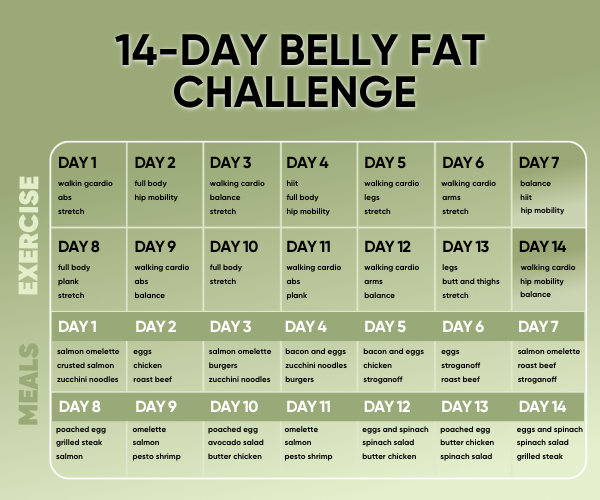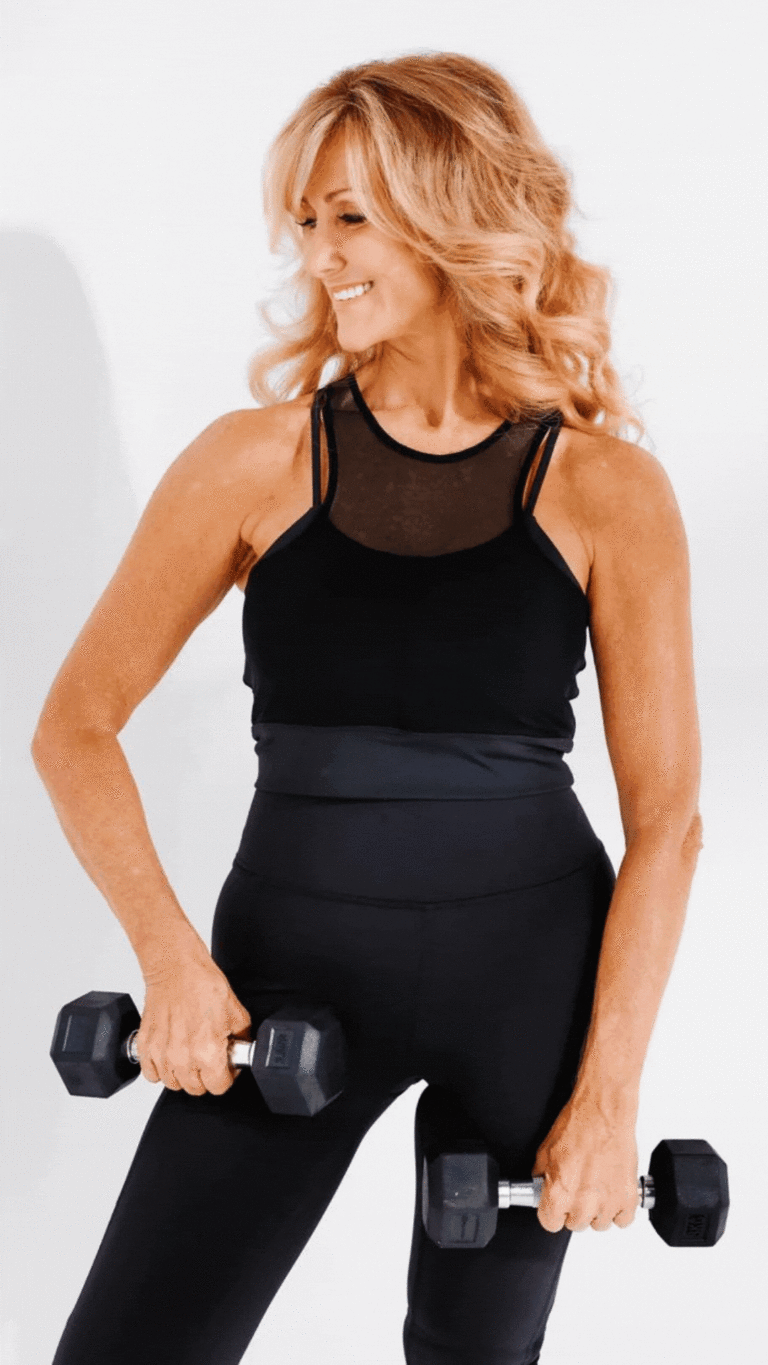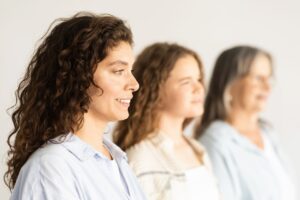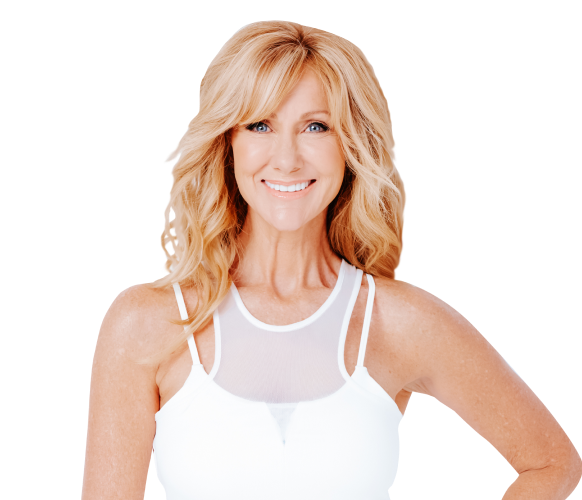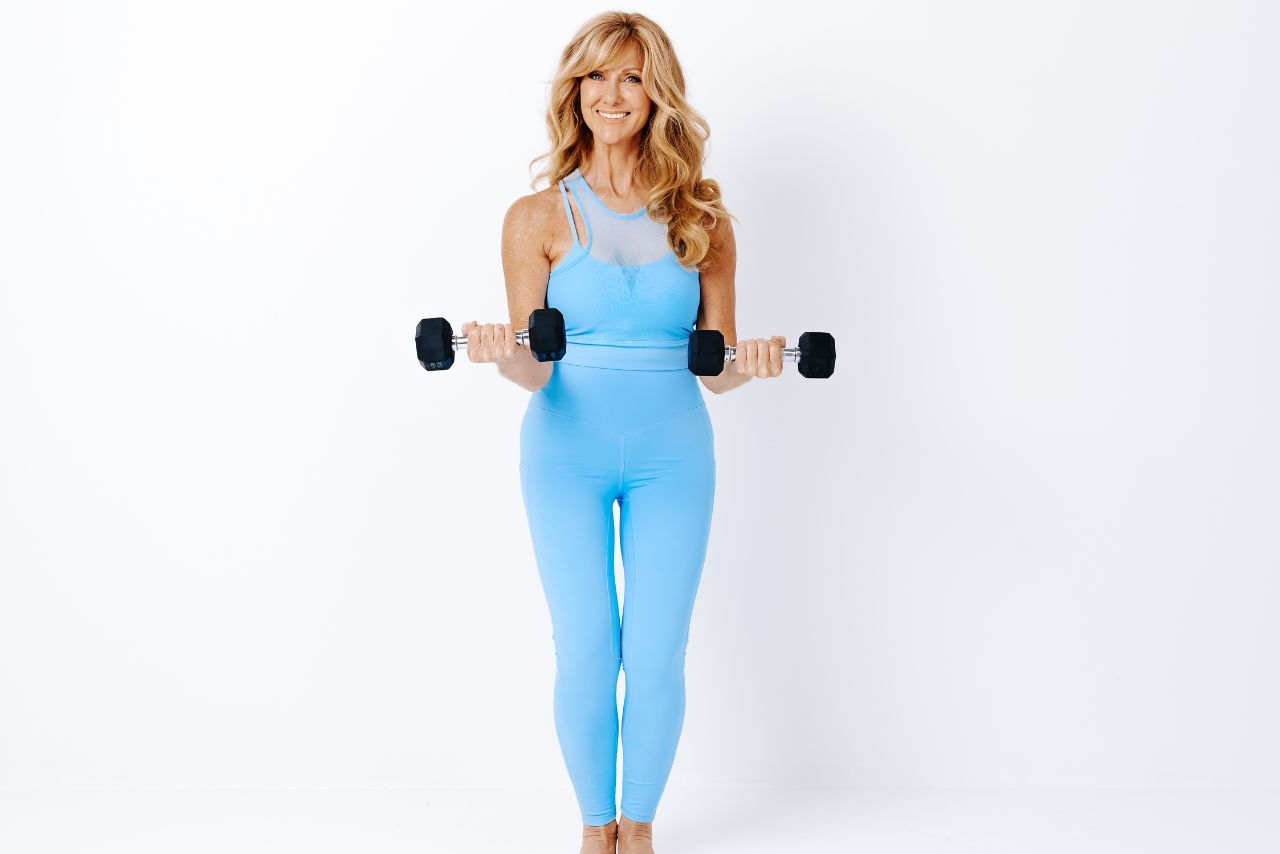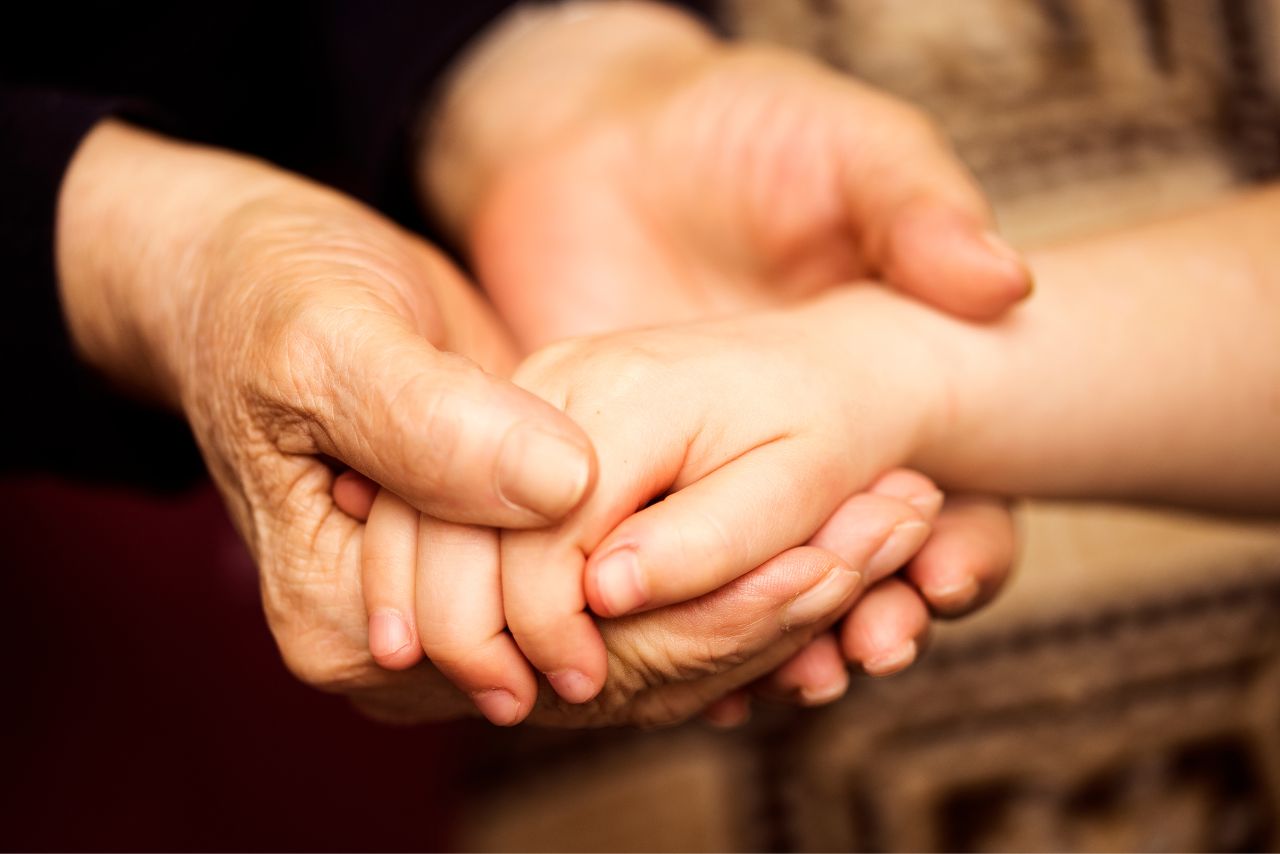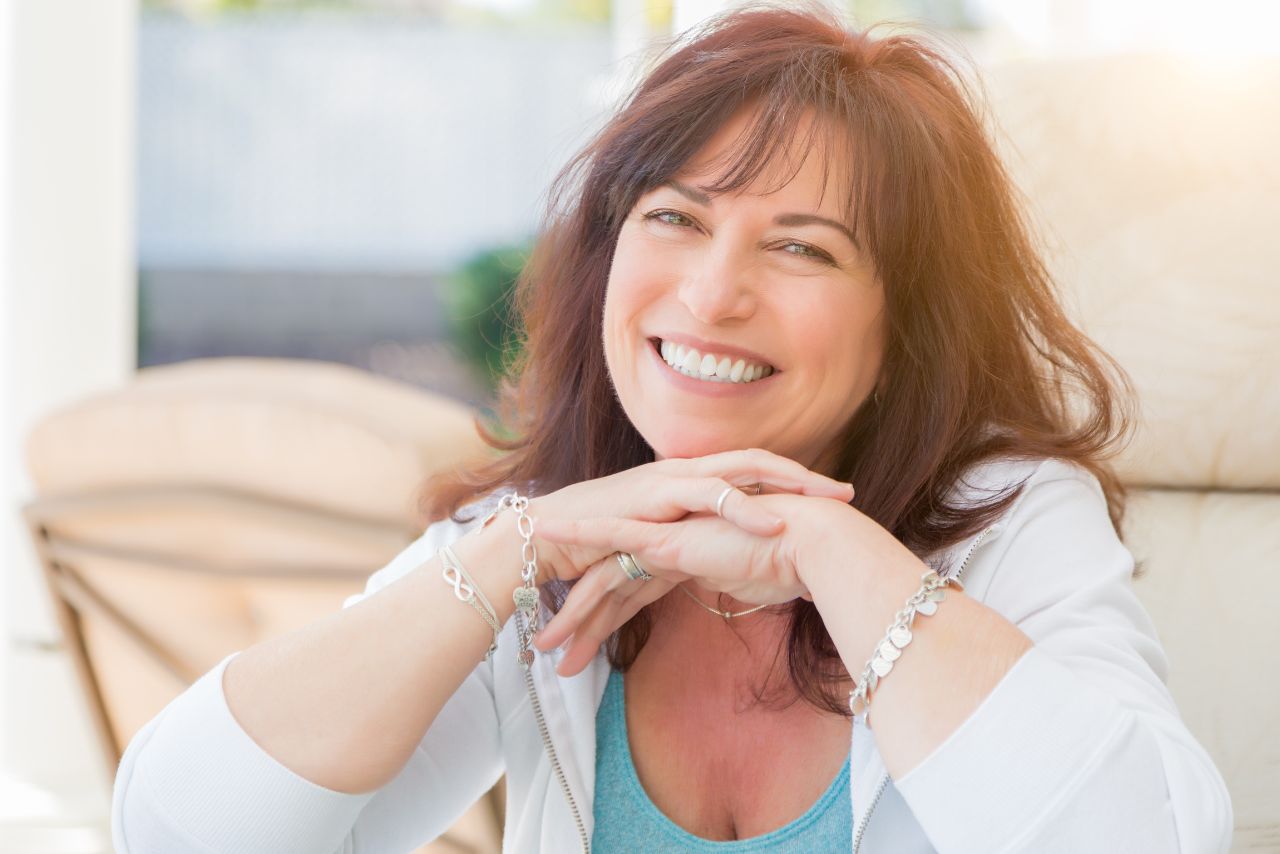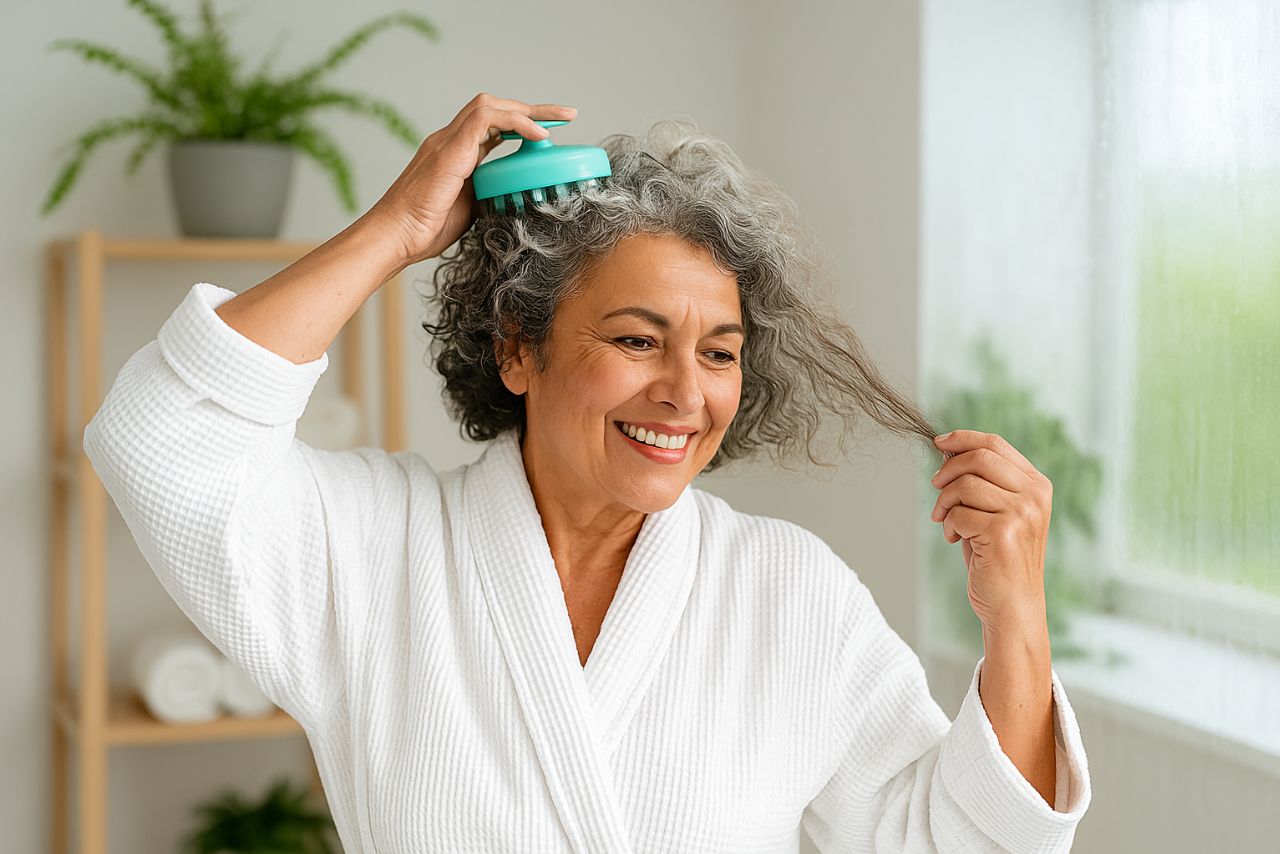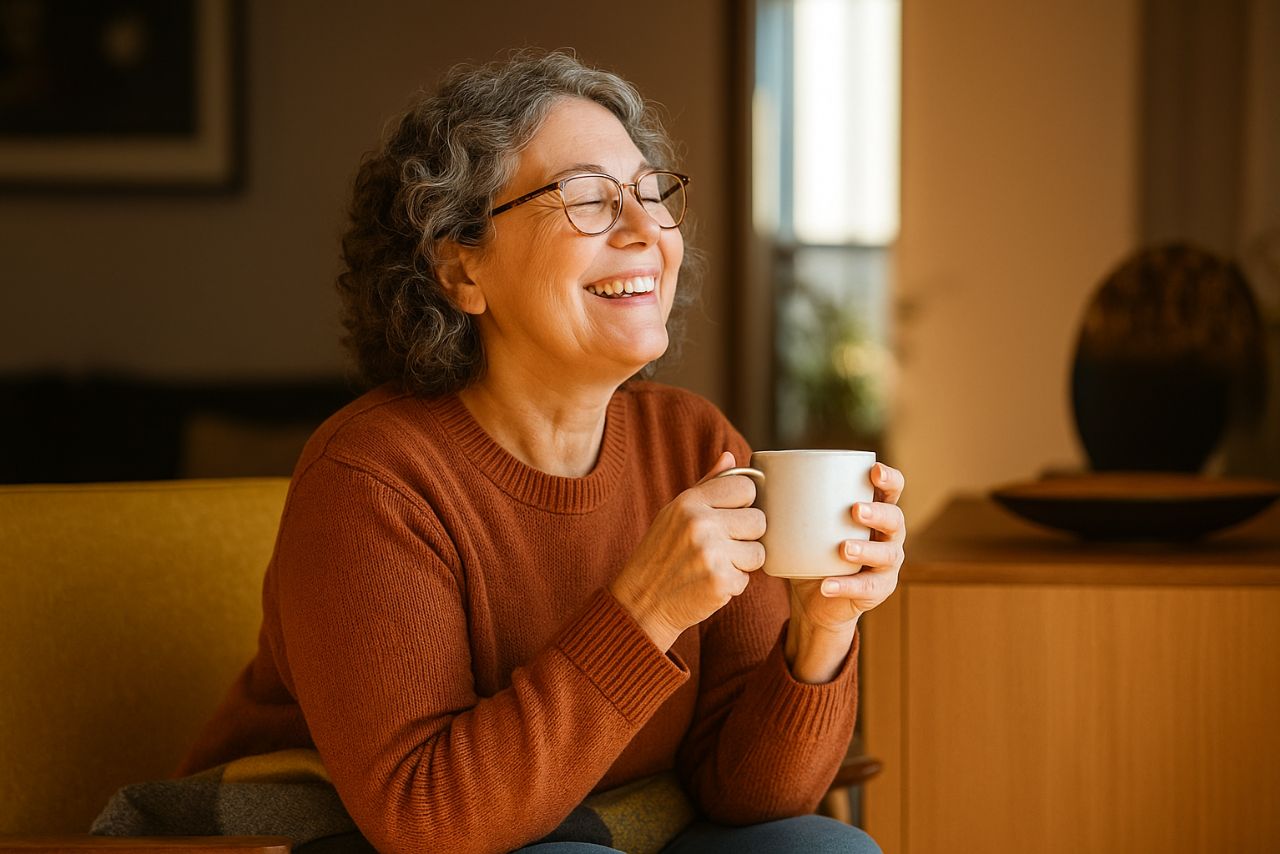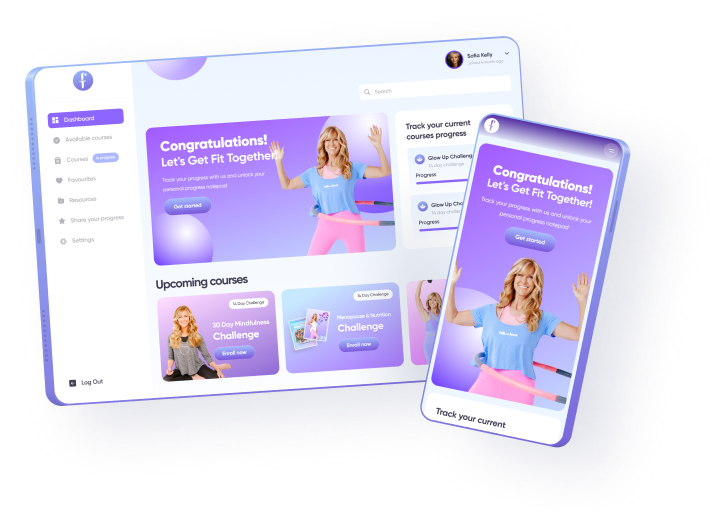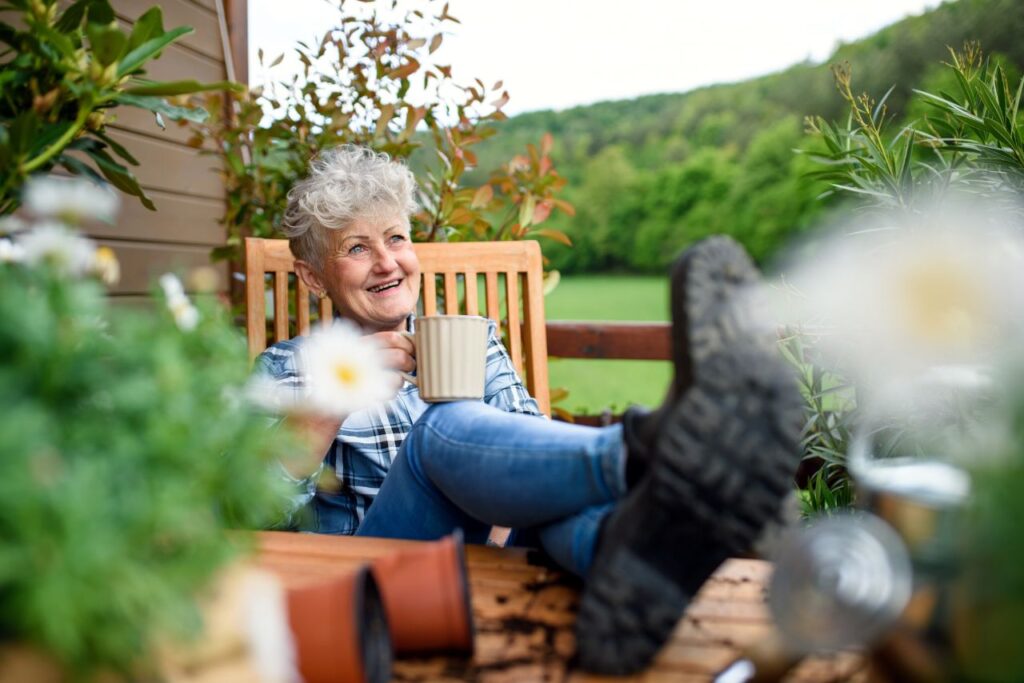
There’s something about November that feels like a deep exhale. The rush of summer has settled. The trees are bare, the nights are quiet, and the air is still, as if life is gently telling us to stop, look back, and ask ourselves, “What did this year teach me?”
This year has taught me more than any other about aging gracefully. I’ve learned that getting older isn’t about “keeping up” with young people; it’s about catching up with yourself. It’s about taking a break long enough to hear your body, your feelings, your limits, and your dreams.
The lessons have come in both soft whispers and loud jolts. They have come in moments of gratitude, in small aches that made me rest, and in unexpected bursts of laughter that reminded me I’m still very much alive.
So here’s everything 2025 taught me about aging gracefully!
Lesson 1: Grace Is About Permission

For most of my life, I thought that “grace” meant being polished, poised, and productive. But I’ve learnt that grace is permission. You have permission to be real. To take a break. To change your mind. To let your hair turn silver without feeling bad about it.
According to Harvard Health, emotional flexibility, the ability to adapt our thoughts and feelings to life’s changing circumstances, is one of the strongest predictors of mental well-being as we age.
Grace, in that sense, is mental flexibility in motion. It’s learning that we don’t have to fight time; we can flow with it.
This year, I let myself stop rushing through the mornings. Instead of drinking coffee on the go, I took my time with tea. I let myself say no to things that wore me out, even if they used to be a big part of who I was.
And guess what? The world didn’t end. My peace just grew to fill the space I used to give away.
READ ALSO: 13 Healthy Aging Tips for Women over 50
Lesson 2: The Body Speaks If We’re Willing to Listen
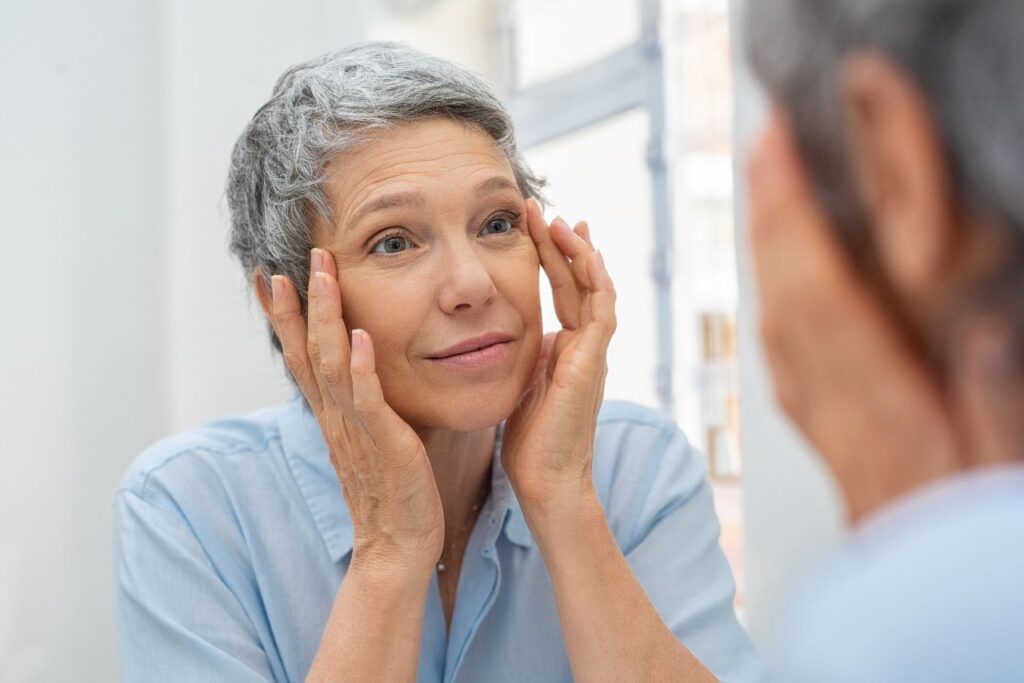
Aging gracefully, I’ve learned, is as much about listening to the body as it is about caring for it. My joints now tell me when the weather is changing. My digestion whispers when I’ve eaten too late. My energy dips when I’ve ignored rest.
Science backs up what we’ve always known: the body and mind are closely linked. The NIH reports that chronic stress accelerates biological aging by shortening telomeres, the protective caps at the end of our DNA strands. In contrast, mindfulness and restorative practices like yoga, walking, or even slow breathing can help slow that process down.
So I started to pay attention. I swapped intense workouts for gentle exercises such as walking, Pilates, and strength training with lighter weights. I stopped treating exercise like punishment and started viewing it as an act of gratitude: Thank you, body, for showing up.
When I stretch, I think of it as a small apology to my body for not paying attention to her signals for so long and a promise that I will now.
Lesson 3: Friendships Are the New Fountain of Youth
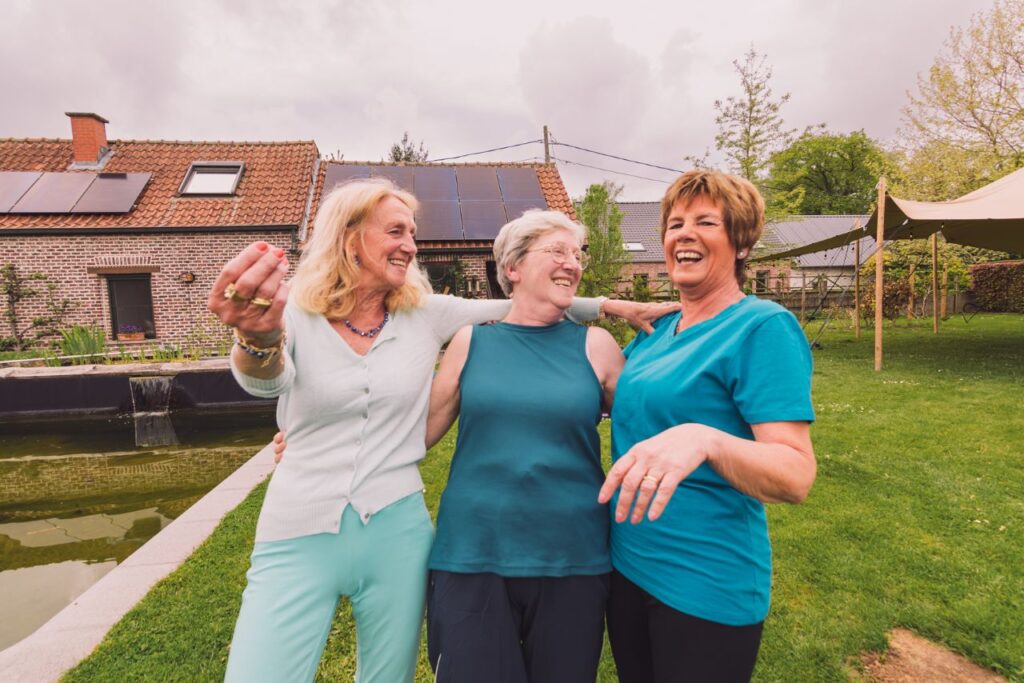
This was the year I rediscovered the healing power of connection. Not just friends you talk to online or casually, but real connections. The kind where you sit across from someone who has been there for you through every season and still sees the best in you.
Research from the Mayo Clinic shows that social connection lowers the risk of depression, cognitive decline, and even heart disease in older adults. Experts on longevity often say that this is one of the “Blue Zones” secrets: people who live the longest aren’t always the ones who eat kale every day; they’re the ones who are part of strong, loving communities.
I used to think that getting older meant losing friends. But this year taught me that it’s not about having fewer friends; it’s about having better ones. I now know that I should put people who bring warmth, laughter, and honesty into my life first. The kind of friends who can talk about both their joint pain and their crazy dreams at the same time.
If you’re reading this and think you’ve lost touch with your friends, get in touch. Get in touch with an old friend. Have a simple dinner. Get together for a walk. A shared laugh can be the best way to take care of yourself, not a new supplement.
READ ALSO: How Friendships After 50 Keep Your Brain and Heart Young
Lesson 4: Letting Go is the New Glow

Letting go brings a lightness that comes from within, not the kind of glow you get from skincare.
I stopped comparing myself to others this year. I stopped comparing my life to that of my younger self or to other women who seem to “have it all together”. I got rid of clothes that didn’t fit my body and habits that didn’t fit my peace.
Aging gracefully means releasing what’s heavy, whether it’s physically, emotionally, or spiritually. A study from the American Psychological Association found that people who can “positively reframe” life transitions experience greater emotional well-being in later life. That means learning to see every change as a step forward instead of a step back.
When you stop trying to stay young and start enjoying the present, you feel a certain kind of freedom. I still love a good moisturiser and a dress that makes me look good, but now I wear them because they make me feel great, not because I want to “look younger.” I don’t put on my glow; I let it happen.
READ ALSO: Life After 50: How to Find Freedom in Letting Go of Who You Used to Be
Lesson 5: Stillness Is a Superpower

I used to think rest was laziness. Now I see it as medicine.
Aging has a way of teaching us that stillness isn’t the absence of life, it’s the awareness of it. When I sit quietly in the morning, watching the sunlight stretch across the floor, I can almost feel my nervous system sigh in relief.
According to Harvard Health, regular meditation and deep breathing lower cortisol, improve focus, and strengthen the brain’s gray matter, which is the area responsible for emotional regulation and memory. This isn’t just spiritual talk; biology backs up what our souls already know, which is that peace heals.
I’ve learned to schedule stillness like I once scheduled meetings. A quiet walk without headphones. A cup of tea on the porch. A few deep breaths before responding to anything stressful. In those moments, I find my truest self, not the one chasing to-do lists, but the one simply being.
READ ALSO: How to Manage Stress with Mindfulness and Meditation Over 50
Lesson 6: Purpose Doesn’t Retire
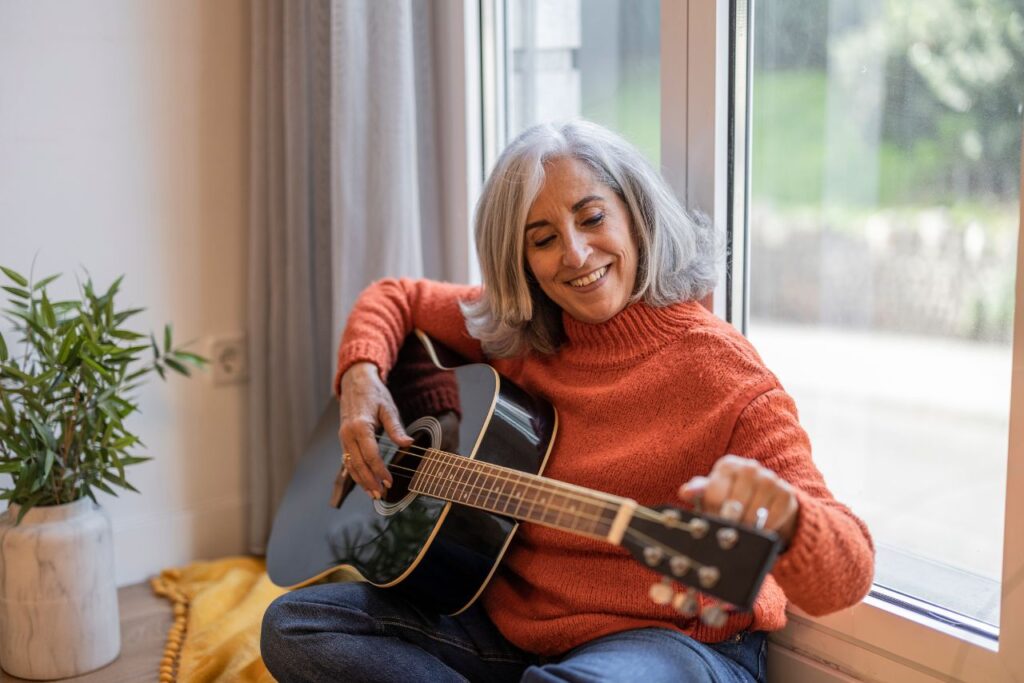
One of the biggest myths about aging is that your best chapters are behind you. But all the women I look up to in their 50s, 60s, and beyond have one thing in common: they are still interested in things. They’re still learning, giving, building, and mentoring. And this is what I love about Schellea Fowler. At her age, she’s still learning, building, and mentoring.
The World Health Organization defines healthy aging as “the process of developing and maintaining the functional ability that enables well-being in older age.” This includes having a purpose, which means feeling like your life still matters and that you’re still making a difference. Studies show that people with a strong sense of purpose live longer and recover faster from illness.
This year, I found meaning in little things, like sharing what I’ve learnt, writing to other women who are going through the same thing, and helping my daughter through her own transition. I’ve learnt that purpose doesn’t have to be loud. Sometimes it’s just the quiet consistency of being there for yourself and others every day.
So, if you’ve ever wondered if your time is up, I want to tell you that it isn’t. Your knowledge is a gift. Your story is still important. And the world still needs what only you can give.
READ ALSO: Now What? 10 Fulfilling Ways to Find Your Purpose After the Nest is Empty
Lesson 7: Gratitude Is the Secret to Longevity
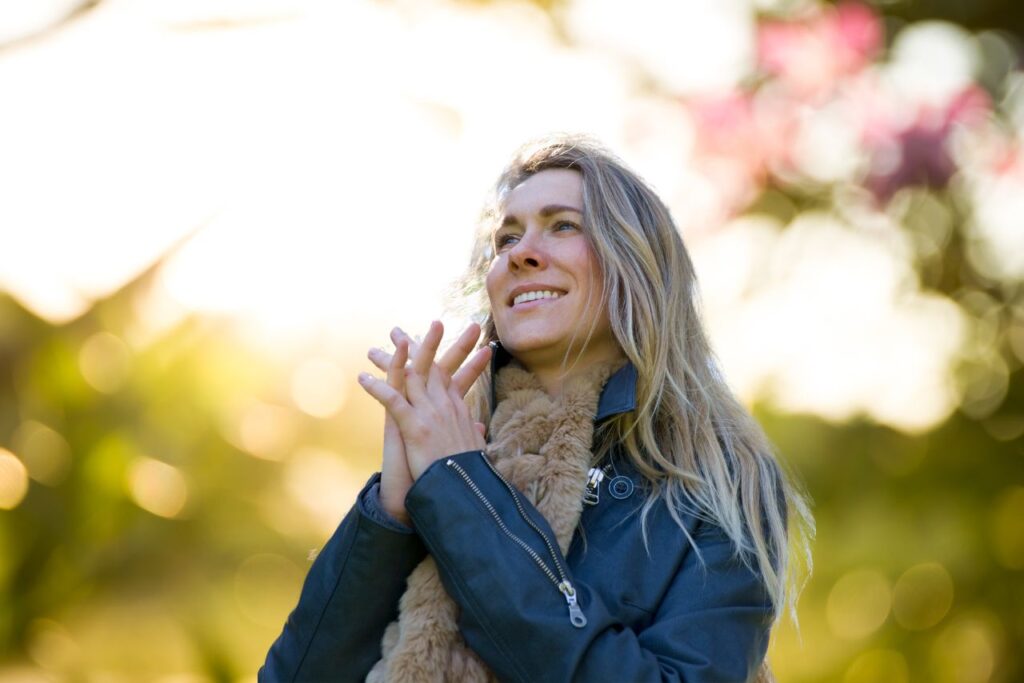
If I could sum up this year in one word, it would be gratitude.
The kind that fills your chest when you think about how many storms you’ve been through and how many mornings you’ve woken up and kept going.
Research from the Greater Good Science Center at UC Berkeley links gratitude with better sleep, stronger immunity, and improved heart health. The act of daily gratitude literally rewires the brain, strengthening neural pathways associated with joy and contentment.
This November, I started a new ritual: each evening, I write down three things that made the day lighter. Some days it’s big, like getting a good health report or having a heartfelt conversation with an old friend. On other days, it’s easy: a walk in the fresh air, a meal that turned out better than I thought it would, or a time when I caught myself smiling for no reason.
I’ve learnt that being thankful doesn’t mean denying hard times. It’s about remembering that there’s always something worth paying attention to, even when you’re in the middle of it.
READ ALSO: How A Thanksgiving Gratitude Walking Exercise Can Boost Your Mood and Health
Lesson 8: Aging Gracefully Is Really About Living Authentically
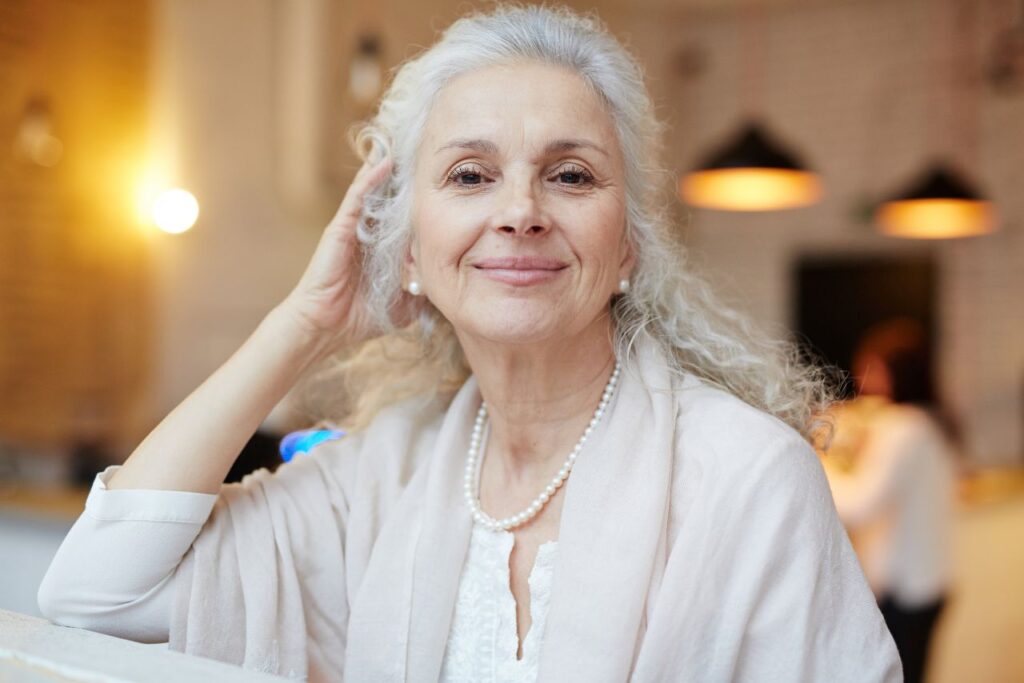
When I look back at my younger self, I see a woman trying so hard to be everything to everyone. But this year taught me that getting older doesn’t mean staying the same; it means becoming more of who you are.
Your 50s, 60s, and beyond can be your most liberating years if you let them. You care less about opinions and more about peace. You trade ambition for alignment. You stop performing and start being.
I’ve learnt to respect the soft power of this season, which is the quiet confidence that comes from really knowing yourself. From choosing what feels right, even when it looks different. From understanding that beauty isn’t in how you look, but in how you enter the world: calm, grounded, and glowing from the inside out.
And if that’s aging, then I’m all for it.
Final Thoughts
As I sit here watching the last of the autumn light fade, I’m making a promise to myself: I will keep getting older, not younger. To live more slowly but more deeply. To honour the lines that tell my story and the power that gets me through each chapter.
Aging gracefully is a daily practice. It’s a balance between caring for your body and caring about your joy. It’s between accepting change and creating new beginnings. It’s between science and soul.
So as November winds down and the year draws to a close, I hope you take a moment to ask yourself: What did this year teach me about growing older?
Whatever your answer, I hope it brings you peace. Every year you live isn’t a loss of youth; it’s a gain in wisdom, bravery, and grace.
Here’s to all of us, still learning, still shining, and still growing, one November at a time.

